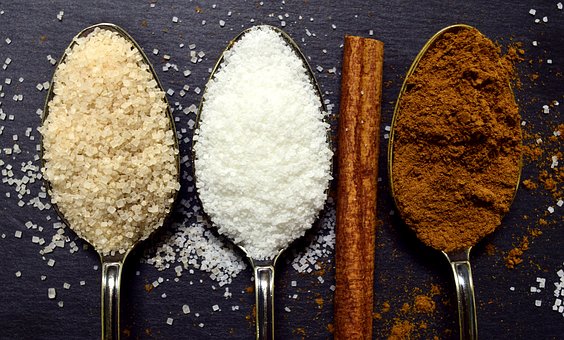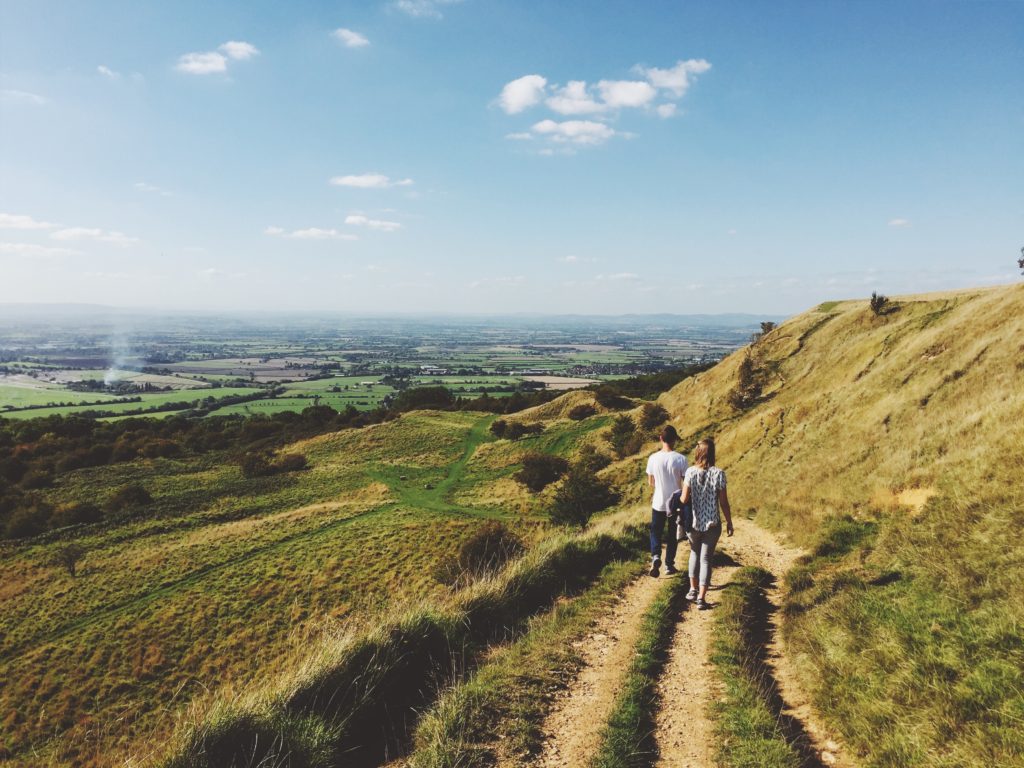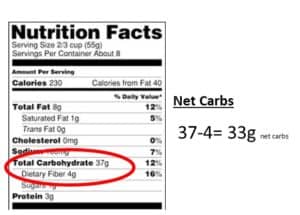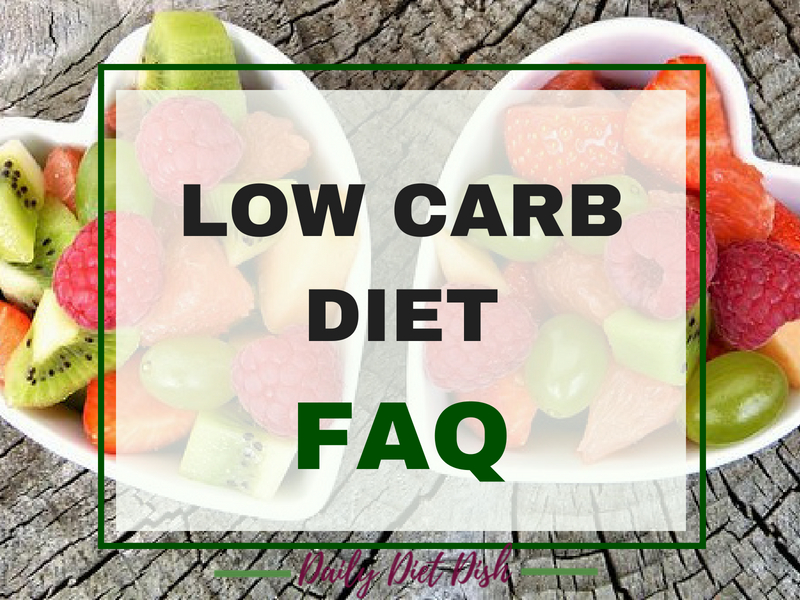The following questions have been the most researched by people who are considering the low carb diet as a lifestyle.
Skip ahead to view the question you’re most interested in.
What is a low carb diet?
A low carb diet is when you intentionally limit your intake of carbohydrates. This can be done for any number of reasons.
The most popular reasons typically include:
- Weight loss
- Lower blood sugar
- Less fatigue
- More energy
- Increased focus
Lowering your carbohydrates can include reducing or eliminating processed carbohydrates in favor of natural foods. It can also include reducing your carb intake overall to a set amount of carbs per day.
There are different types of low carbohydrate diets with different levels of restrictions. They all have their advantages and disadvantages.
Here are some of the most popular low carb diets:
- Typical low carb diet
- Atkins diet
- Ketogenic diet
- Low carb, high-fat diet (LCHF)
- Low carb paleo diet
- Low carb Mediterranean diet
To get a full beginner’s guide to a low carb diet, here’s a complete beginner’s guide with infographics.
What is the difference between a low carb and a low-calorie diet?
There is a major difference between a low carb diet and a low-calorie diet.
A low carb diet is one that reduces total carbohydrates, which is a macronutrient. This is what the body uses for energy by turning it into glucose.
The other macronutrients are fat and protein. Because carbohydrates are so easily digested, once you eat enough of it, the fat you consume is stored. A low carb diet ends up helping you to burn more fat.
On the other hand, a low-calorie diet reduces the total amount of calories that you consume. For example, a person who normally consumes and burns 2000 calories a day would now consume 1500 calories. The goal is to create a calorie deficit of 500 calories.
This means you also burn more stored fat for energy. On a low-calorie diet though, the macronutrient that tends to get cut the most is fat, since it is high in calories.
Which foods should I eat?
There are different types of low carb diets that each require a different level of carb intake.
On any low carb diet, you want to include foods that are:
- High in fiber
- Nutrient-rich
- Good sources of healthy fat
- Good sources of healthy protein
These are great food sources for reducing cravings, abating hunger and keeping full. This will help to prevent over-eating, and lowering carbs will result in more fat being used for energy. This helps to achieve your weight loss goals.
Which foods should I avoid?
 Here are some foods that you should not be consuming if you want to see results faster:
Here are some foods that you should not be consuming if you want to see results faster:
- Bread
- Refined flour, rice, pasta
- Sweetened
- Certain types of fruits
- Starchy vegetables
- Cereal
- Sweetened beverages or juices
Consuming these foods will result in slower weight loss if that is your goal. However, one cheat meal won’t get you off track. If you are worried about snacking or being subjected to bland and boring meals, here are some ideas to help you out:
- 25 no carb snack ideas
- 19 easy low carb snack ideas
- Low carb/keto diet food list
- Low carb coffee & cocktails
To find out about more the low carb diet, you can read this guide for beginners.
What are the low carb diet side effects?
Unless you cut your carbs suddenly or have any underlying health issues, it isn’t likely that you’ll experience any side effects when you go on a low carb diet.
However, some common side effects include:
- Headaches
- Bad breath
- Nausea
- Constipation
- Fatigue
Some of these side effects, such as constipation, are due to a lack of proper nutrition while on the diet. When you stop consuming refined carbs, you should consume enough leafy vegetables and other fiber-rich food sources. These foods will ensure that you have enough fiber for a bowel movement and ensure that you get the vitamins and minerals that fat or protein can’t provide.
However, these side effects all depend on the level of ‘low carb’ that you want.
To avoid these side effects, it’s best to reduce carbs gradually instead of going from over 100 grams to less than 50 grams in a short period of time. It’s good to give your body time to adjust.
Drinking your recommended water intake daily, and eating nutrient-rich foods will help you to recover from any adverse side effects.
Can I drink alcohol on a Low carb diet?
A big concern for dieters is whether or not they can consume alcohol. Most soft drinks (and juices in general) need to be avoided because they contain insane carbs.
- 1 can of Pepsi contains 25.6 grams of carbs
- 1 12-oz can of Coca-Cola contains 35 grams of carbs
- 1 cup of orange juice contains 26 grams of carbs
Alcohol is no different.
While most alcohol will contain some amount of calories, some will have more than others. Stronger and sweeter beers such as barley wine may contain up to 25 grams of carbs.
Lighter beers, however, may contain less than 10 grams.
The great thing is that there are a lot of low carb alcohol options for you to choose from.
Take a look at some examples:
- 1 can of Budweiser -11 g carbs
- 1.5 oz whiskey- 0 g carbs
- 1.5 oz vodka-0 g carbs
- 1.5 0z tequila- 8 g carbs
- 1.5 0z cognac- 3 g carbs
- 1.5 oz white rum- 0 g carbs
Note that1.5 oz is equal to one shot.
Some wines tend to have even fewer calories. For the wine options below, we used 5 ounces for each serving. Note that every brand is different so please check the labels for yourself.
- Red wine- 3.8g carbs
- White wine – 3.8g carbs
- Moscato -11g
- Champagne- 6g
- Chardonnay -3.2g
The figures above prove that you can definitely enjoy alcohol on a low carb diet. To get more ideas for low carb cocktails, read Keto, Coffee & Cocktails.
If you aren’t sure about a particular brand, just read the label. Unless you’re planning to drink the whole bottle in one day, you shouldn’t have a problem.
Can I lose weight on a low carb diet without exercise?

You can definitely lose weight on a low carb diet without exercise.
Actually, your diet has more impact on your weight gain than exercise does, although you can lose weight more effectively if you combine both.
Aside from the most common practices like reducing your refined carbohydrates, drinking more water, and reducing your meal size, there are other ways that you can maximize weight loss on a low carb diet without working out.
Here are 5 simple ways that you can optimize a low carb diet for weight loss:
1- Eat More Protein and Dietary Fiber
These foods will help you to feel fuller during meals and keep you satisfied for a longer time. This reduces the total amount of food that you eat.
The reason why dietary fiber is important in foods is that it provides satiety without additional calories. It can’t be digested. Insoluble fiber is found in foods like peas, broccoli, oats, and other whole grains and vegetables.
It also adds bulk to the food, helps with digestion, and helps to prevent constipation, which some might experience on a low carb diet.
Its presence in a particular food item also means that the ‘net carbs’ in the food is reduced.
What are net carbs? The total carbs in your food that will actually be digested and used by your body.
Here’s a simple equation to find out how much net carbs is in a food item: Total carbs- fiber= net carbs

2- Try a Keto diet
A Keto diet, also called a ketogenic diet, is a strictly low carb diet that is done with the aim of putting the body into a state called ketosis. Normally, your body would burn carbohydrates for energy by converting it into a simple sugar called glucose. When it does this, the fats that are consumed is stored because glucose is so much easier for your body to use.
On the ketogenic diet, however, the goal is to burn fat instead of carbs for energy. This can help the body to use up stored fat in addition to any fat that is consumed. To learn more about the keto diet, read this keto diet guide for beginners.
3- Carb cycling
This is a common way to overcome a weight loss plateau and lose fat. It is done by alternating (cycling) the amount of carbs that you eat on a daily, weekly or monthly basis.
Carb cycling is done by consuming carbs when they are most needed, and restricting or even eliminating them when they are not.
People who work out often would do this by ‘carbing up’ before a workout session to get the extra energy boost. After a work out session, they go back to eating a low carb diet.
This approach has to be tailored to your individual body and energy needs.
4- Eliminate ‘Cheat Days’

When you decide to do a cheat day, you’re really just cheating yourself.
Th reason we don’t recommend it is that people tend to go overboard and set themselves back after just one day.
Additionally, telling your brain that it’s Ok to binge as long as you eat healthy for the other 5-6 days is not healthy. When you use this approach, it’s easy to revert back to unhealthy eating habits because you’re training your brain to justify it. Unless you are a person who is extremely disciplined, it’s easy to rationalize having a Big Mac for lunch because you had a smoothie for breakfast.
It’s not easy to say goodbye to all the foods that we love to pursue a low carb lifestyle, but maybe if the food that we loved was good for us, we wouldn’t need to go on a diet in the first place.
While we don’t advocate for cheat days, you should definitely have a cheat meal if you feel like you need it. You can also tailor your version of cheat meals to suit YOUR lifestyle.
That could mean having a bowl of fruits that you wouldn’t normally have during the week due to their high carb content. It could mean mixing some pasta into your soup at dinner or having a slice of pie if it’s something you need. Take a human approach to dieting and see the psychological difference that it makes.
But having 4 pancakes for breakfast, pizza for lunch and a bowl of spaghetti for dinner just because it’s a cheat day? Just, no.
Not if you want to optimize your weight loss.
5- Curb the cravings
This can be done by preparing beforehand. Here are some simple tips:
- Have snacks on hand. Everywhere. Here’s a list of no carb snacks and low carb snacks.
- Eat foods that you love every day. This will prevent food burnout and can help to prevent binge eating.
- Listen to your body to tell you what it needs. Are you craving foods that are rich in salt, calcium, maybe iron? Maybe you just need to be eating more of those.
- Find a healthier version of the food that you’re craving. Whether it’s chocolate or bread, you have many alternatives.
So those are a few of the ways that you can lose weight on a low carb diet without working out . If you want to read more about weight loss, here’s a good article about 7 proven ways to lose weight effectively, along with some crash diet mistakes that people make.
Can I do a low Carb Diet Without Ketosis?
Definitely.
A typical low carb diet, one where you simply eliminate refined carbs and eat more whole foods, is actually more sustainable for the long term. A keto diet has a limit of fewer than 20 grams of carbs, or 5-10% of your daily calories.
A typical low carb diet is less restrictive and will give you the same weight loss results that you would get on a ketogenic diet. It would just take a longer period of time.
So how can you do a typical low carb diet?
- Focus on high-quality proteins and fats
- Reduce starchy vegetables
- Cut out sugar and refined carbs
- A daily limit of 20-60 grams of carbs is typical
This is a diet that you can start today and you’re less likely to have to count carbs, once you have a general idea of the amount of carbs that you need to eat.
How fast can I lose weight on a low carb diet?

Exercise and dieting are very good ways to lose weight consistently and effectively. Crash dieting can actually jeopardize your health in the long run. To find out more about effective weight loss and crash dieting, read more about it here.
Starting a low carb diet can result in a substantial weight loss within the first one or two weeks, but this is really water weight. An effective diet alone can bring consistent weight loss over a long period of time.
RECAP
A low carb diet can be a useful tool for weight loss. With the right information, food, and mindset, you can effectively reach your weight loss goals and experience multiple benefits along the way. Our website has more information about low carb dieting and losing weight.
Remember that you want to make this diet fit into your lifestyle so that you don’t have to stress about meal planning, food preparation, or any diet-related concern.

